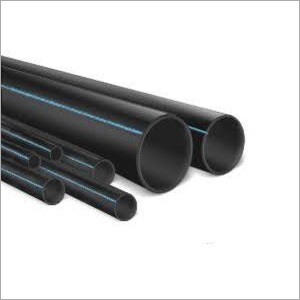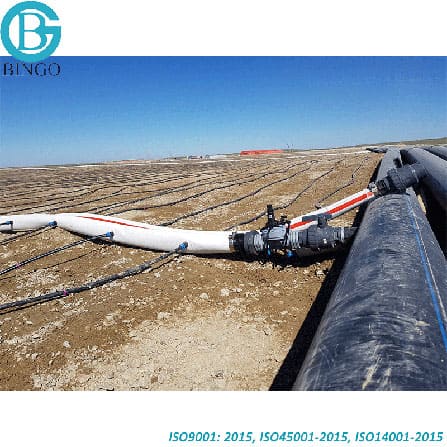Comprehending the Trick Benefits of HDPE Pipe for Water and Wastewater Management
Using HDPE pipe in water and wastewater administration provides many benefits that warrant factor to consider. Its remarkable toughness and lengthy lifespan make it a preferred choice for numerous jobs. In addition, the product's resistance to corrosion and chemical damages boosts its reliability in various environments. The advantages expand past simply durability and resistance. American Plastics HDPE Pipe for Oilfield. Exploring its cost-effectiveness and ecological impact discloses even a lot more engaging factors for its widespread fostering in modern-day framework
Exceptional Resilience and Long Life

HDPE pipeline stands out for its extraordinary durability and longevity, making it a favored selection in water administration systems. Created from high-density polyethylene, these pipes can endure significant pressure and stress, making certain reliable performance with time. Their durable nature enables them to sustain severe environmental problems, including temperature variations and dirt motions, which can create other materials to stop working.
The lifespan of HDPE pipes commonly surpasses half a century, supplying an economical service for towns and markets alike. In addition, the material's lightweight homes simplify installation, decreasing labor costs and durations. This sturdiness minimizes the requirement for regular repair work or substitutes, further boosting its financial appeal.
In water management applications, the dependability of HDPE pipelines means less interruptions and improved solution connection, making them indispensable to lasting facilities growth. The mix of durability and longevity solidifies HDPE's function as a keystone in efficient water monitoring solutions.

Resistance to Rust and Chemical Damages
While many materials catch deterioration and chemical damage with time, HDPE pipelines show impressive resistance, making them suitable for different water administration applications. This strength stems from the molecular structure of high-density polyethylene, which is naturally non-reactive and does not wear away like metals or deteriorate from direct exposure to extreme chemicals. As an outcome, HDPE is extremely effective in environments with aggressive substances, such as wastewater systems that may include acids, bases, and organic solvents.
In addition, HDPE pipes can hold up against ecological factors such as soil level of acidity and saline conditions, further improving their viability for varied applications (hdpe pipe suppliers Midland TX). Their ability to preserve structural honesty gradually lowers the risk of leakages and failures, which is vital in ensuring the safety and integrity of water circulation and wastewater administration systems. The resistance to corrosion and chemical damages substantially adds to the total performance and long life of HDPE piping solutions.
Cost-Effectiveness and Financial Advantages
When considering the monetary effects of water management systems, the cost-effectiveness of HDPE pipes becomes apparent. These pipelines use lower setup and upkeep expenses compared to conventional materials like steel or concrete. Their light-weight nature streamlines transportation and installment, causing minimized labor expenditures. Furthermore, HDPE pipes show a lengthy lifespan, typically exceeding 50 years, which translates to fewer replacements and long-lasting savings.
Additionally, the resistance of HDPE to rust and chemical damages reduces the need for costly repair services and replacements. The pipelines also support effective water flow, decreasing power expenses related to pumping systems. By mitigating leakages and water loss, HDPE pipelines add to considerable financial benefits for districts and industries alike. In general, the first investment in HDPE piping can generate significant financial returns over the life-span of the water management system, making it a sensible choice for look at this website sustainable infrastructure advancement.
Ecological Sustainability and Minimized Impact

Convenience and Flexibility in Installment
Due to their distinct residential or commercial properties, HDPE pipes offer impressive flexibility and flexibility in installation, making them ideal for a large range of applications. Their light-weight nature enables less complicated handling and transport, lowering labor prices and setup time. HDPE pipelines can be bent and shaped to fit numerous terrains and project demands, which is particularly helpful in testing settings.
In addition, their resistance to rust and chemical damage permits for installment in varied settings without the need for specialized safety coatings. The capability to fuse joints develops a continuous, leak-free system, enhancing the overall honesty and reliability of the installation. HDPE's versatility likewise fits ground motion, minimizing the danger of damages in areas vulnerable to moving soil. Overall, these characteristics make HDPE pipes not just flexible but also a favored selection for water and wastewater administration systems.
Regularly Asked Questions
How Does HDPE Pipe Contrast to PVC in Water Management Applications?
HDPE pipeline uses superior adaptability, resistance to rust, and toughness contrasted to PVC. Its lighter weight promotes much easier installation, while its long life-span decreases substitute costs, making HDPE a favored selection in water monitoring applications.
What Is the Life-span of HDPE Pipeline Under Typical Conditions?
Under common conditions, HDPE pipelines can have a life-span ranging from 50 to 100 years. Their resilience and resistance to deterioration add to their long-term efficiency in different applications, making them a reputable option for infrastructure.
Are HDPE Water Lines Recyclable After Their Life Span?
Yes, HDPE pipelines are recyclable after their life span. Pipe Manufacturing Midland TX. They can be refined and repurposed right into brand-new products, significantly minimizing ecological effect and promoting sustainability within the market, making them an eco-friendly selection for piping services
What Is the Installment Refine for HDPE Pipes?
The installment procedure for HDPE pipelines entails site preparation, trenching, pipe blend or mechanical signing up with, backfilling, and pressure screening. Correct techniques assure a sturdy and reliable system for transferring water and wastewater successfully.
Can HDPE Pipes Be Used for Both Drinkable and Non-Potable Water Equipments?
Yes, HDPE pipes can be utilized for both safe and clean and non-potable water systems. Their adaptability, sturdiness, and resistance to corrosion make them ideal for various applications, ensuring safe and this website efficient transport of water in different contexts.